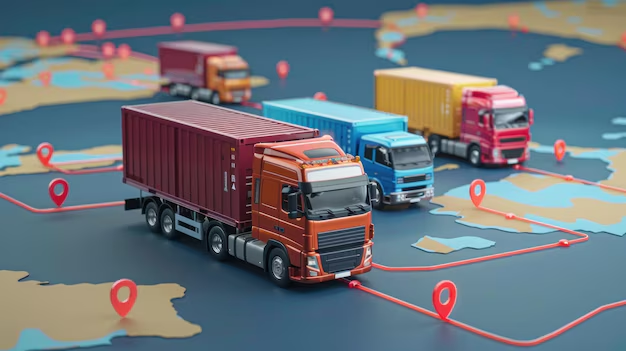
Modern logistics operations heavily rely on automation to increase efficiency and reduce human error. Technologies like Robotic Process Automation (RPA) and Artificial Intelligence (AI) are being used for:
Warehouse automation: Robots manage inventory, pick-and-pack orders, and streamline fulfillment.
Predictive analytics: AI helps forecast demand, optimize delivery routes, and reduce fuel costs.
Smart inventory management: Automated systems ensure that stock levels are optimized and updated in real time.
While these innovations reduce operational costs and human errors, they also create challenges in workforce displacement and require significant upfront investment.
The Internet of Things (IoT) allows companies to connect vehicles, cargo, and even pallets to the internet, creating an ecosystem where every move is tracked.
Fleet management systems track delivery trucks and optimize routes on the go.
Smart sensors monitor temperature-sensitive goods in transit.
Real-time tracking increases transparency for clients, enhancing customer satisfaction.
Immutable record-keeping for supply chain transparency.
Smart contracts that automatically execute agreements once conditions are met.
Fraud reduction and enhanced trust between parties.
Despite its promise, blockchain adoption is still in its early stages, and integration with legacy systems can be complex.
High implementation costs
Resistance to change among staff
Dependence on skilled IT professionals
Cybersecurity risks
Data analytics
Systems management
Cybersecurity
Automation maintenance
As logistics companies continue to adopt and adapt, those who embrace change strategically will be the ones leading the future of global supply chains.

Chamba Manali Transport Co.(Regd), for the past 25 years, we have consistently enabled smooth logistics for businesses across India

